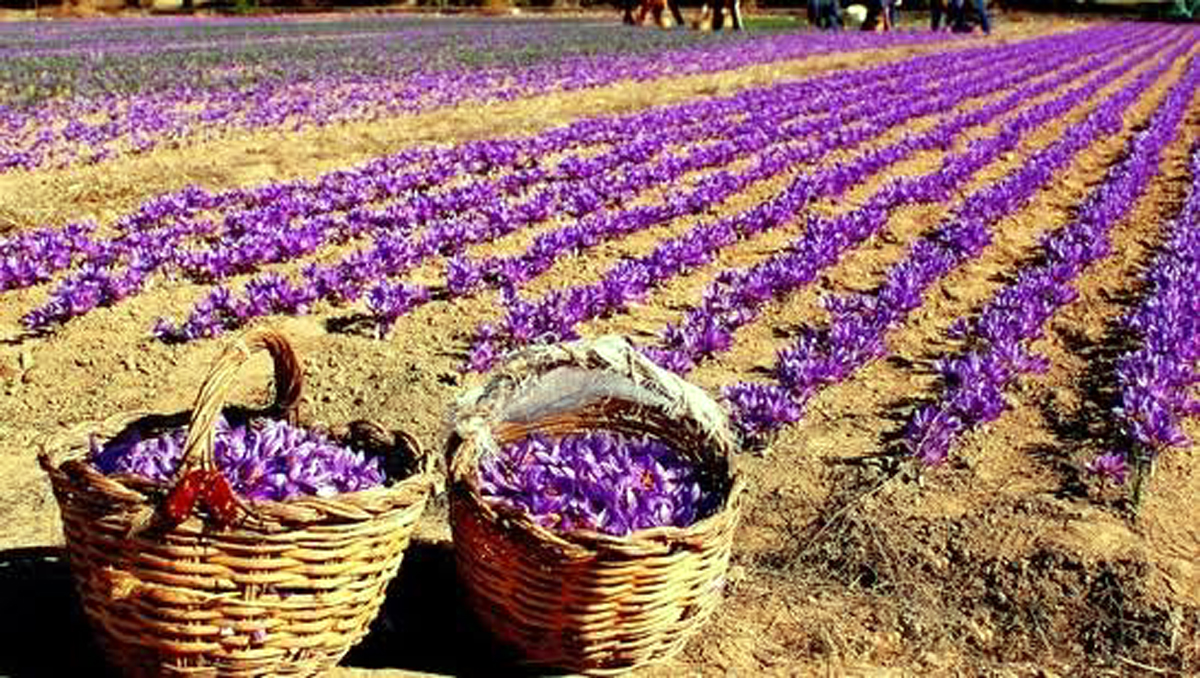Farooq Ahmad Dar, a progressive farmer from Samboora village in Pulwama district, has successfully harvested the season’s first saffron crop, marking an early bloom in his fields. Dar, who cultivates saffron on four kanals of land along the banks of the Jhelum River, began harvesting fresh saffron flowers as early as October 7.
He attributes the early bloom to the moisture retained in the soil, supported by fallen poplar leaves that line the boundary of his saffron beds. “The shade from the trees helps preserve soil moisture, leading to early and healthy blooms,” Dar told Rising Kashmir. So far, he has harvested three small batches of flowers and expects a full bloom by next week.
Last season, Dar harvested around 40 kilograms of fresh flowers, but this year, he anticipates a significantly higher yield, estimating around 100 kilograms. His innovative approach to saffron cultivation sets him apart from traditional methods. Unlike most farmers who grow saffron on Karewa plateaus, Dar cultivates the spice on flat land, locally known as “Pathul.”
Dar’s two siblings have also adopted this practice, and their land is expected to bloom with saffron flowers within the next two days. His dedication and success have gained attention on social media, where a photo of him meticulously separating saffron stigmas at home has gone viral, earning widespread praise.
Saffron, a highly prized spice derived from the Crocus Sativus flower, is mainly cultivated in Mediterranean regions. In India, it is predominantly grown in the Kashmir Valley, especially in Pulwama, Srinagar, and Budgam districts, with contributions from Kishtwar and Doda in Jammu.
The saffron flowering season typically starts in mid-October and can extend into early November. Farmers like Dar can harvest up to five rounds of fresh blooms during this period. Once the stigmas are carefully dried, they become a valuable ingredient in food, beverages, and traditional medicine.

